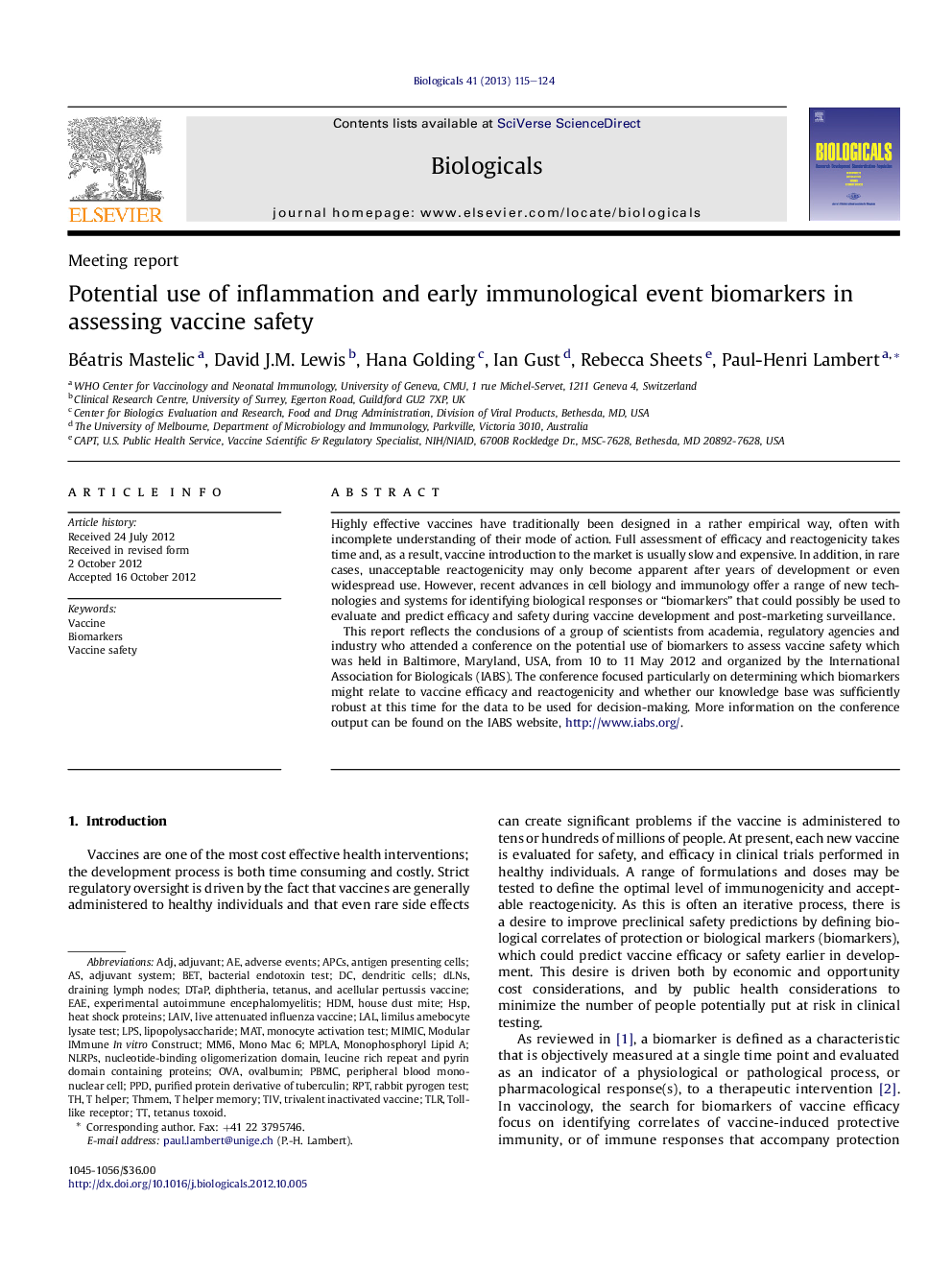| Article ID | Journal | Published Year | Pages | File Type |
|---|---|---|---|---|
| 2034057 | Biologicals | 2013 | 10 Pages |
Highly effective vaccines have traditionally been designed in a rather empirical way, often with incomplete understanding of their mode of action. Full assessment of efficacy and reactogenicity takes time and, as a result, vaccine introduction to the market is usually slow and expensive. In addition, in rare cases, unacceptable reactogenicity may only become apparent after years of development or even widespread use. However, recent advances in cell biology and immunology offer a range of new technologies and systems for identifying biological responses or “biomarkers” that could possibly be used to evaluate and predict efficacy and safety during vaccine development and post-marketing surveillance.This report reflects the conclusions of a group of scientists from academia, regulatory agencies and industry who attended a conference on the potential use of biomarkers to assess vaccine safety which was held in Baltimore, Maryland, USA, from 10 to 11 May 2012 and organized by the International Association for Biologicals (IABS). The conference focused particularly on determining which biomarkers might relate to vaccine efficacy and reactogenicity and whether our knowledge base was sufficiently robust at this time for the data to be used for decision-making. More information on the conference output can be found on the IABS website, http://www.iabs.org/.
► Biomarkers for preclinical safety evaluation of a vaccine is a work in progress. ► The use of biomarkers still needs to prove its robustness in clinical trials. ► Biomarker assays as new tools for predicting reactogenicity of vaccine candidates. ► Common effort to standardize and demonstrate the validity of these new approaches.
